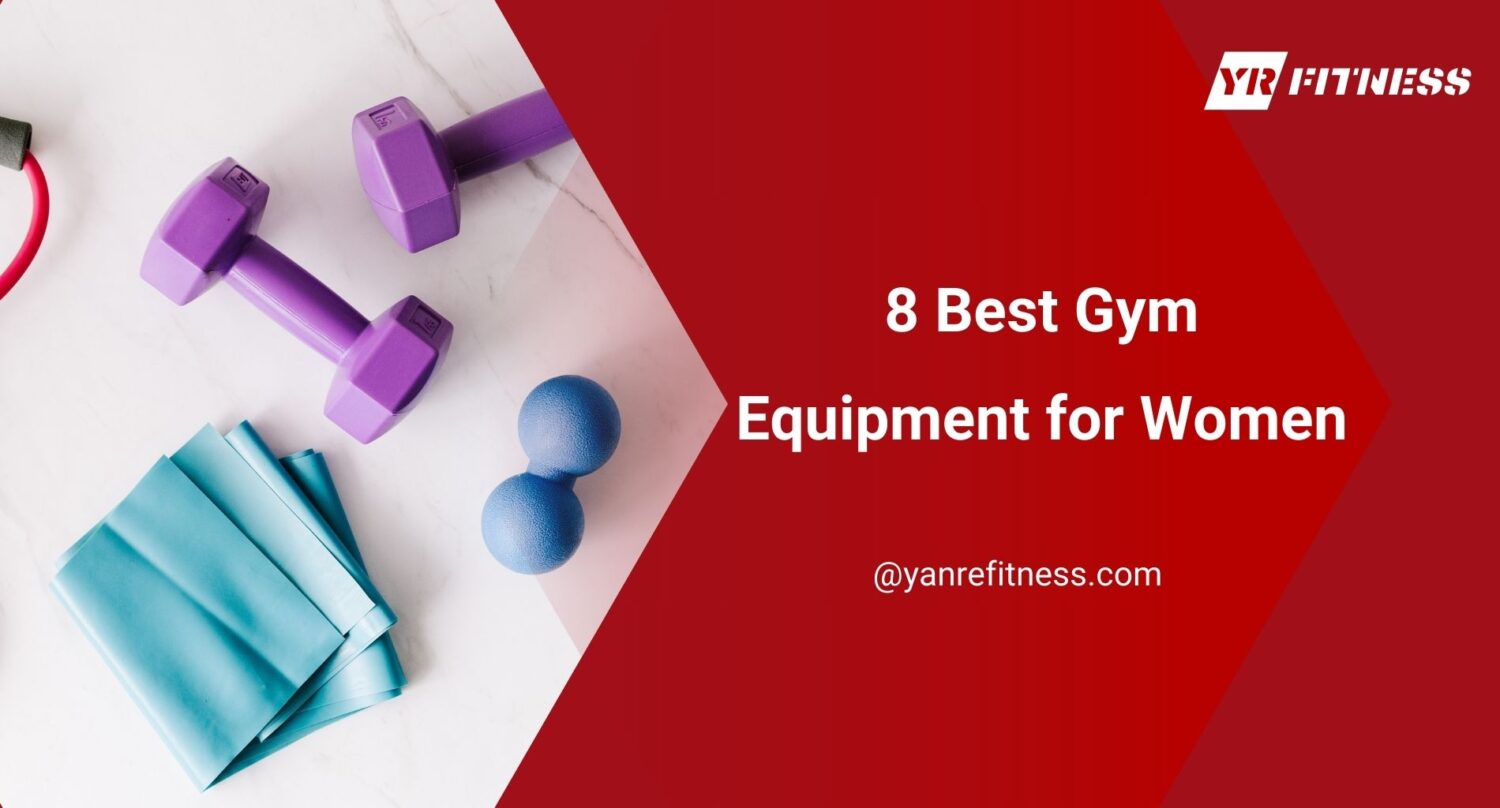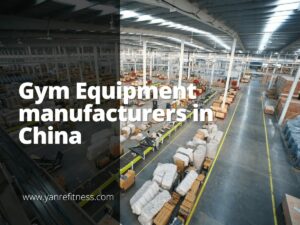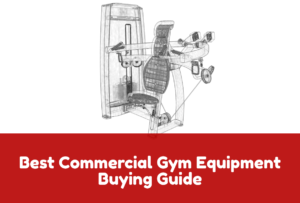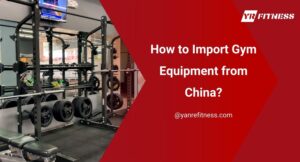I walked into a fitness center once and noticed something strange. 5 women were lined up at one cable machine, waiting. Meanwhile, rows of other machines sat untouched.
That moment stuck with me.
I’ve spent years testing commercial equipment and watching how different groups use it. Some machines are always in use. Others? Barely touched. And when you talk to people using them, you start to see why.
This article shows you 8 types of gym equipment women prefer. You’ll learn what sets them apart—and why that matters. By the end, you’ll know which machines are trending, and what helps keep female clients engaged.
So let’s get started!
Table of Contents
Quick Comparison Chart
Let’s start with a quick visual summary. This table covers the basics: target areas, user type, and what each machine is best for.
Machine | Primary Targets | Best For | Key Features Highlight | Facility Fit |
Glute Kickback Machine | Glutes, Hamstrings, Lower Back | Glute shaping, beginner-safe training | One-leg motion, compact size, ergonomic setup | Women’s studios, lower-body zones, rehab gyms |
Stair Climber | Glutes, Quads, Hamstrings, Calves, Core | Cardio + leg toning | Programmable resistance, steel treads, small base | High-traffic gyms, cardio zones, wellness clubs |
Glute Drive Machine | Glutes, Hamstrings, Core | Barbell-free hip thrust alternative | Belted thrust, curved arc, commercial frame | Aesthetic-focused gyms, influencer spaces |
Dual Adjustable Pulley | Glutes, Core, Arms, Shoulders, Back | Full-body sculpting, PT and rehab | Dual stacks, cable height adjust, accessory use | Boutique studios, luxury gyms, compact zones |
Assisted Pull-Up & Dip | Back, Arms, Shoulders, Chest | Upper-body strength building | Assisted platform, multi-grip handles | Strength circuits, intro training areas |
Elliptical Trainer | Legs, Glutes, Arms, Core (secondary) | Low-impact full-body cardio | Silent resistance, heart-rate console | Mixed-use gyms, wellness clubs, recovery spaces |
Seated Ab Crunch Machine | Abdominals, Obliques, Hip Flexors | Core training without floor work | Pivot crunch motion, padded lumbar support | Body sculpt zones, senior gyms, general circuits |
Leg Curl/Extension Combo | Quads, Hamstrings, Knees (stabilizer) | Complete leg training in small spaces | Two-in-one design, selectorized weight stack | Compact gyms, dual-use areas, women’s studios |
Now that you’ve seen the overview, let’s walk through each machine and explore what makes them so effective.
1. Glute Kickback Machine
I still remember watching a woman use this machine for the first time. She stepped in, adjusted the pad once, and moved with total control. No hesitation. No awkward setup. Just smooth, focused movement. It was clear—this machine was made for comfort, confidence, and results.
Some machines try to do too much. The glute kickback machine does one thing—and does it well.
Key Features
- Adjustable pad height: fits users of different sizes with smooth pin-lock system
- Non-slip foot platform: textured rubber surface for secure placement during kickbacks
- Ergonomic hand grips: help maintain posture and stability throughout the movement
- Commercial-grade resistance system: plate-loaded or selectorized (100–150 lbs per side)
- Heavy-duty steel frame: powder-coated for durability and long-term use
- Compact footprint: typically under 4 ft x 3 ft, ideal for smaller gyms or studios
- Target muscles: glutes, hamstrings, lower back
Pros and Cons
Pros
- Great for isolating glutes
- Safe on knees and lower back
- Easy to use with little instruction
Cons
- Single-leg use may limit throughput during peak hours
- May not appeal to those who prefer full compound movements
Why Choose This Machine
This machine is a go-to for glute shaping with safe, isolated movement. It’s simple, effective, and beginner-friendly. At YR Fitness, we offer a standing version designed for clean motion and strong glute engagement—ideal for women’s zones, small studios, or any space focused on lower-body training.
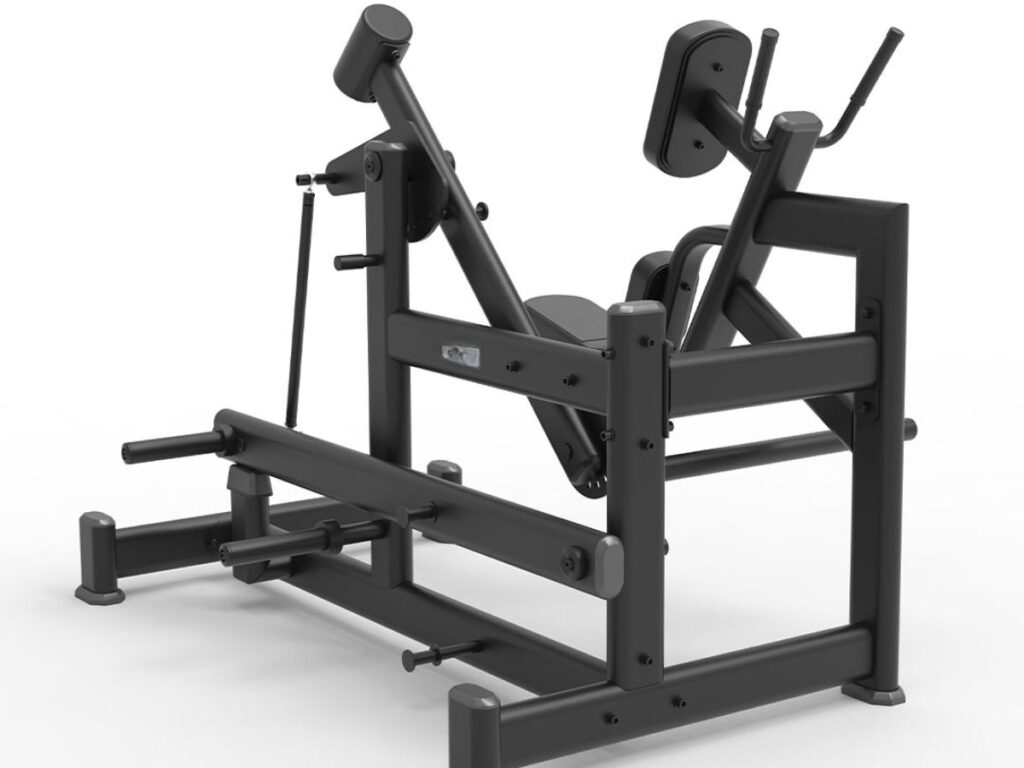
2. Stair Climber
I used to walk past the stair climber without giving it a chance. It looked intense and awkward—like something meant for serious athletes, not casual users.
But one day I gave it a shot. Twenty minutes later, I was drenched, my legs were shaking, and I felt amazing. It was tough, but it didn’t hurt my knees. That’s when I realized: this machine isn’t just challenging—it’s smart, and women are catching on fast. If you enjoy a machine that challenges you while being gentle on the joints, you might also want to explore the best gym machine for abs, which offers great core-targeting workouts.
Key Features
- Large steel treads: with anti-slip coating for safe, stable stepping
- Quiet belt drive system: allows smooth step motion and minimal mechanical noise
- Programmable resistance levels: 20–30 settings for varied intensity
- Heart-rate monitor compatible: integrated sensors or strap-ready input
- Digital console: shows time, steps, calories, floors climbed, and more
- Compact footprint: average size 4 ft x 3 ft, fits well in cardio zones
- Target muscles: glutes, quads, hamstrings, calves, core
Pros and Cons
Pros
- Combines cardio and strength
- Great for toning legs and glutes
- Easy to adjust intensity
Cons
- Can feel repetitive over time
- Intensity may be too much for new users
Why Choose This Machine
The stair climber is a favorite among women because it tones the glutes, thighs, and calves—all while offering a solid cardio workout. It’s low-impact but high-output, making it perfect for those who want results without added joint stress. For gyms, it elevates cardio zones and fits neatly even in tighter spaces.
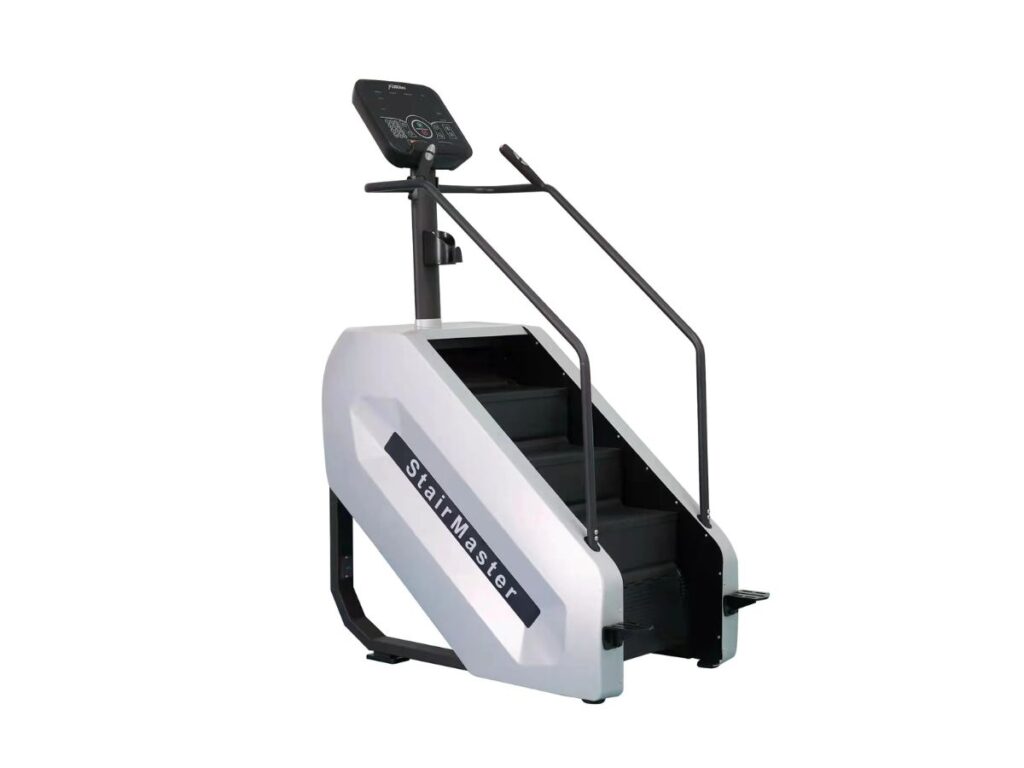
3. Glute Drive Machine
The first time I used a glute drive machine, I felt solid and secure. No barbell digging into my hips. No awkward bench balance.
Just smooth movement, deep glute activation, and real control. It felt strong, clean, and safe—like the machine was built to support you through every rep without the struggle.
Key Features
- Adjustable backrest: multiple angle options to fit various torso lengths
- Hip thrust safety belt: padded and locking for secure, guided movement
- Curved resistance arc: supports natural hip extension for better glute activation
- Non-slip platform: rubber base plate to anchor foot positioning
- Heavy-duty commercial frame: powder-coated steel, supports up to 300 kg total load
- Quick load/unload system: plate holders positioned for fast transitions
- Target muscles: glutes, hamstrings, core
Pros and Cons
Pros
- Strong glute activation without barbells
- Safe and comfortable for all fitness levels
- High appeal and repeat usage
Cons
- Larger footprint than bench setups
- Requires plate loading during busy hours
Why Choose This Machine
This machine is made for glute training—especially for women who want comfort, safety, and real results. It removes the awkward setup of barbell thrusts and replaces it with guided, controlled movement. It supports strength and shape goals without compromise. On the business side, it’s a popular social media piece and a reliable anchor for any female-friendly strength zone.
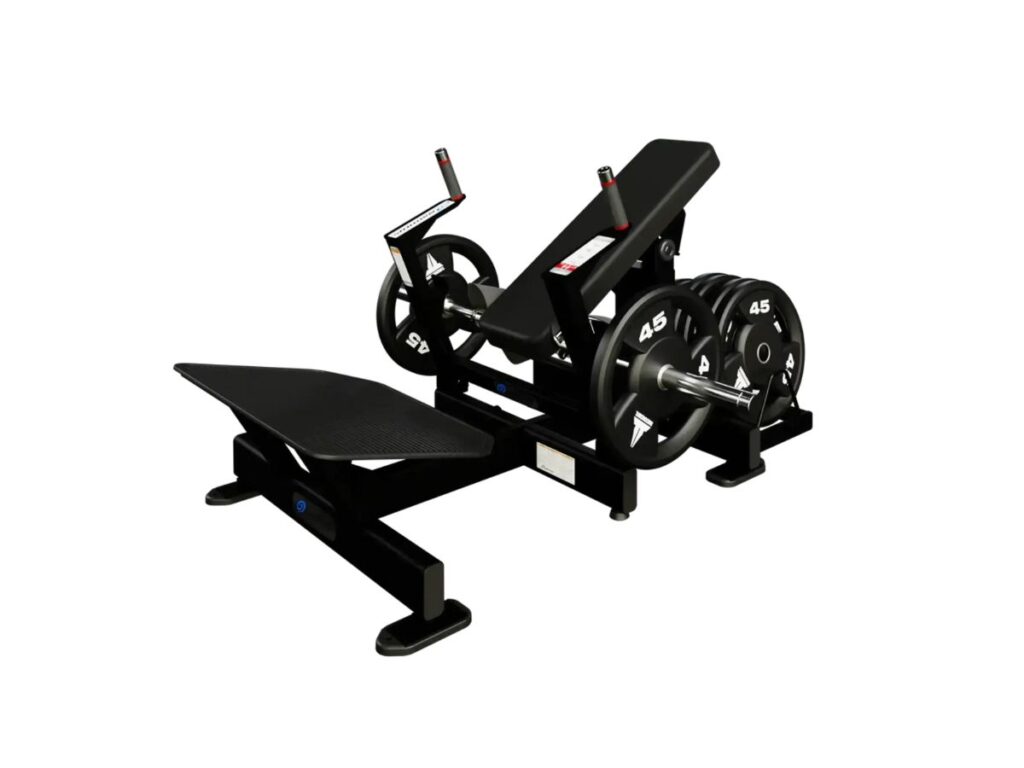
4. Dual Adjustable Pulley (Functional Trainer)
You ever wish one machine could just do it all? That’s how I felt the first time I used a dual adjustable pulley. I tried a glute kickback, then switched to ab twists—all in seconds.
No waiting. No fuss. Just smooth movements and total control. It felt easy, but still strong. I got a full workout in without even moving stations. If you like variety and freedom in your training, this one delivers every time.
Key Features
- Dual weight stacks: 75–100 kg (165–220 lbs) per side, smooth selectorized movement
- 20+ pulley height levels: allows precise cable positioning for all body types and exercises
- Multi-accessory compatible: works with D-handles, ropes, straight bars, and ankle straps
- Smooth cable glide: commercial-grade cables with aluminum pulleys for fluid motion
- Space-saving design: typically under 5 ft wide and 3 ft deep
- Built-in pull-up bar: adds upper-body functionality in one footprint
- Target muscles: glutes, core, arms, shoulders, back
Pros and Cons
Pros
- Supports full-body training
- Great for beginners, rehab, and PT sessions
- Easily adjusts for height, strength, or skill level
- Delivers high ROI per square foot
Cons
- Requires initial guidance or instruction
- It can be confusing without trainer support
Why Choose This Machine
This is a top choice for women-focused training: it supports glutes, core, and upper body with smooth, controlled movements. You can use it for strength, sculpting, or low-impact rehab—all without switching machines. For any facility needing versatility and space efficiency, this one brings strong value and constant member use.
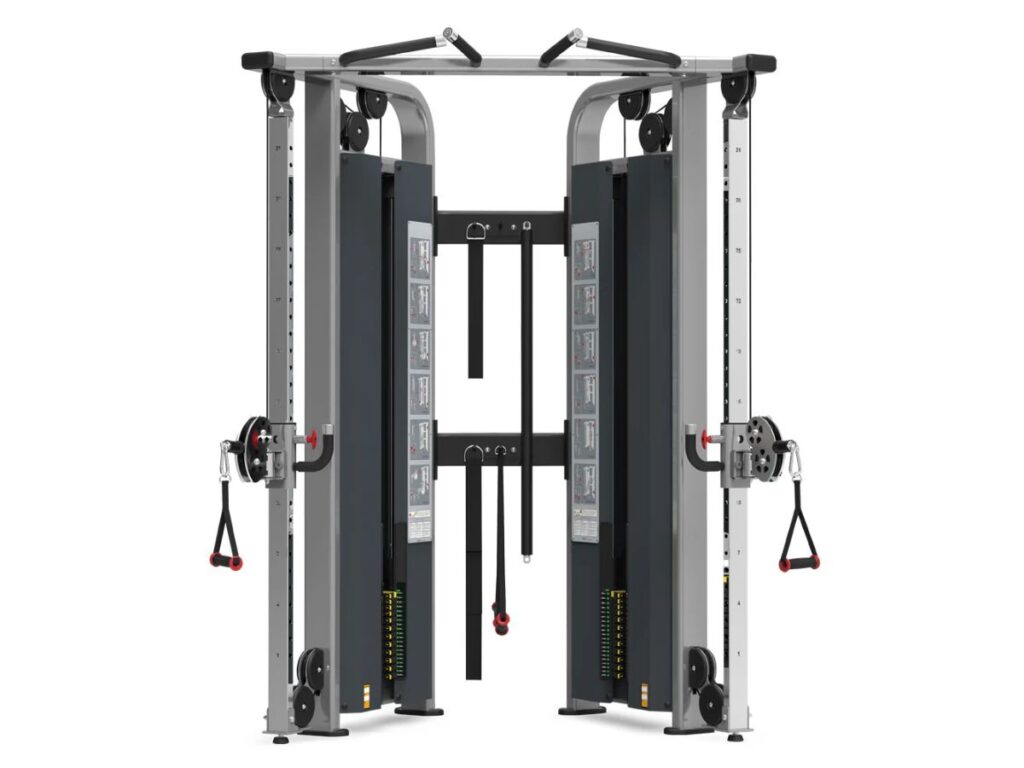
5. Assisted Pull-Up and Dip Machine
Your hands grip the bars. The platform lowers beneath your knees. You breathe in, press down, and rise—smooth, steady, stronger than you expected. That first lift feels powerful. Not perfect, but real.
I still remember that moment. No wobble. No fear of falling. Just a quiet click of movement and a little push from the machine that made all the difference. That’s what got me hooked on upper-body training.
Key Features
- Weight-assisted knee platform: reduces body load for safe, supported movement
- Multi-grip handles: allows wide-grip, neutral, and close-grip pull-ups, plus triceps dips
- Adjustable resistance stack: 5–100 kg to suit different strength levels
- Steel step-up base: textured surface for secure foot placement
- Heavy-duty frame: welded commercial steel with powder-coated finish
- Compact footprint: around 4 ft x 3 ft, suitable for most strength areas
- Target muscles: back, arms, shoulders, chest
Pros and Cons
Pros
- Excellent for beginners building upper-body strength
- Removes fear and intimidation around bodyweight exercises
- Promotes visible, trackable progress
- Great for trainer-led sessions and small group programs
Cons
- Bulkier than other upper-body machines
- Less movement variety compared to cable-based equipment
Why Choose This Machine
This machine helps women feel strong—without feeling overwhelmed: it supports controlled progress in a space where many hesitate to start. The assist feature builds trust and confidence, turning “I can’t” into “I did.” It’s a strong visual and functional addition to your strength zone, especially where empowerment and consistency matter most.
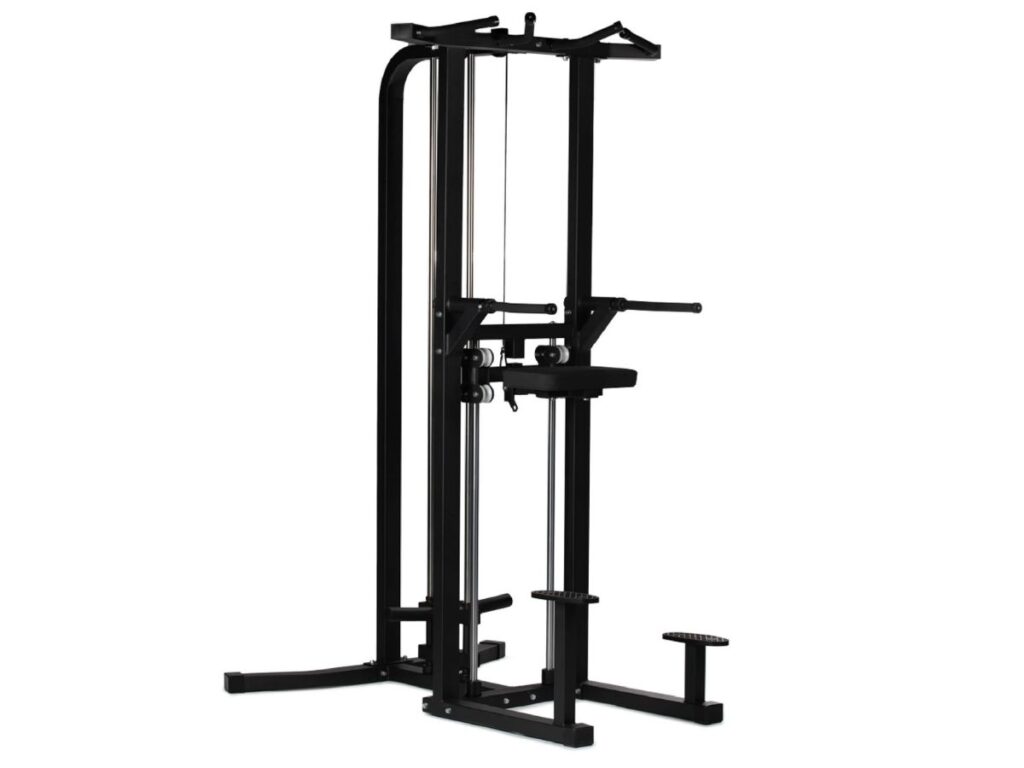
6. Elliptical Trainer
Stepping onto an elliptical feels smooth right from the start. The pedals glide forward like they’re floating. Each movement flows—legs pushing, arms pulling—with no harsh impact or noise.
The motion feels natural. There’s no pounding like with a treadmill. Just quiet resistance and full-body effort. It’s steady, gentle, and surprisingly addictive.
Key Features
- Rear or center-drive motion: supports upright posture and balanced movement
- Dual-action handles: works arms, shoulders, and legs together
- Heart-rate sensors: built into grips or compatible with chest straps
- Silent magnetic resistance: nearly noise-free even on high levels
- Digital console display: tracks time, speed, distance, calories, and pulse
- Compact frame: typically fits within 4–6 ft, ideal for most cardio zones
- Target muscles: abdominals, obliques, hip flexors
Pros and Cons
Pros
- Low-impact cardio—gentle on knees, hips, and ankles
- Easy to use and beginner-friendly
- Engages both upper and lower body
- Ideal for longer workouts or recovery sessions
Cons
- Doesn’t build muscle strength like resistance machines
- Can feel repetitive for advanced users
Why Choose This Machine
This cardio trainer is a top pick among women who want joint-friendly workouts with full-body movement: it’s smooth, safe, and welcoming to all levels. It’s ideal for recovery, daily cardio, or beginner routines. Low maintenance and high appeal make it a smart addition to wellness gyms and mixed training spaces.
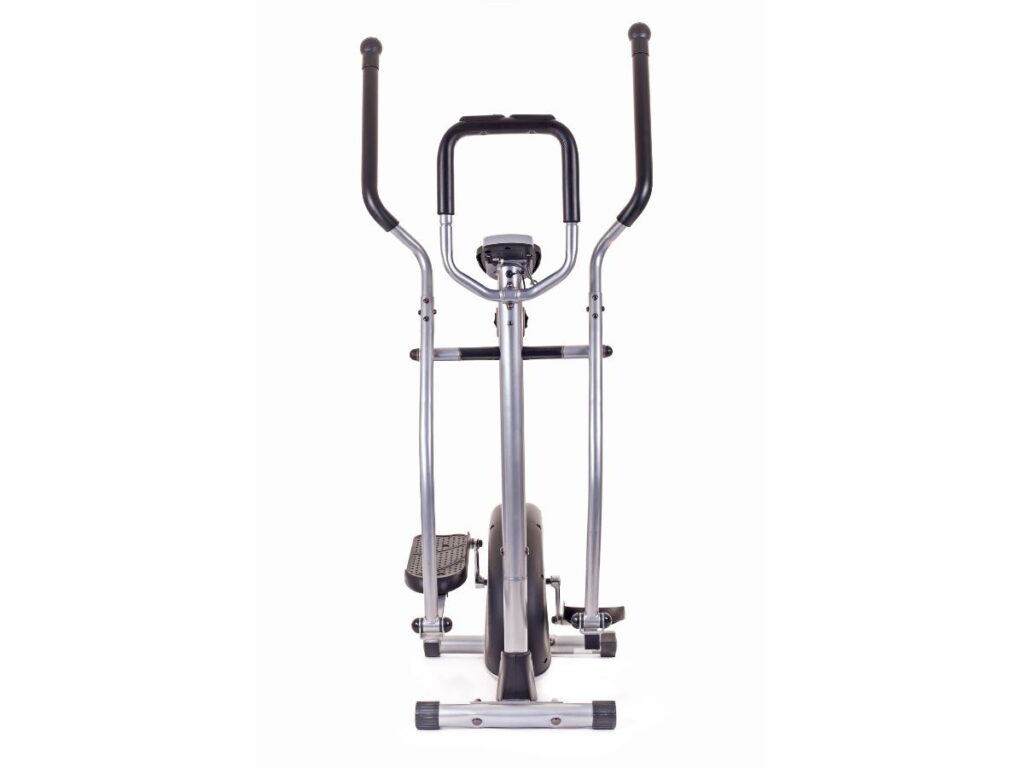
7. Seated Ab Crunch Machine
“Am I even doing this right?”
That’s what ran through my head the first time I tried crunches on the floor. My neck hurt. My lower back ached. And I didn’t feel it in my abs at all.
Then I sat down on an ab crunch machine. The padded seat felt stable. The motion was clear. And for the first time, I felt a real crunch—controlled, focused, and surprisingly comfortable.
Key Features
- Adjustable resistance: selectorized or plate-loaded, typically 5–100 kg
- Forward-pivot design: follows the natural crunch motion
- Lumbar support: cushions the lower back and encourages proper form
- Padded handles and seat: improves grip and comfort
- Compact size: fits easily into core zones or small training circuits
- Target muscles: abdominals, obliques, and hip flexors
Pros and Cons
Pros
- Adds resistance to core work for stronger abs
- Upright position—no floor needed
- Ideal for beginners, seniors, or post-rehab users
Cons
- Only allows one movement direction
- May not engage deeper core muscles without variation
Why Choose This Machine
This machine supports women who want effective ab training without discomfort or floor exercises: it’s simple, seated, and confidence-boosting. It builds good habits, especially for those starting out or returning after a break. Great for body-sculpt areas, strength circuits, or core-focused training zones—easy to use, reliable, and popular with members.
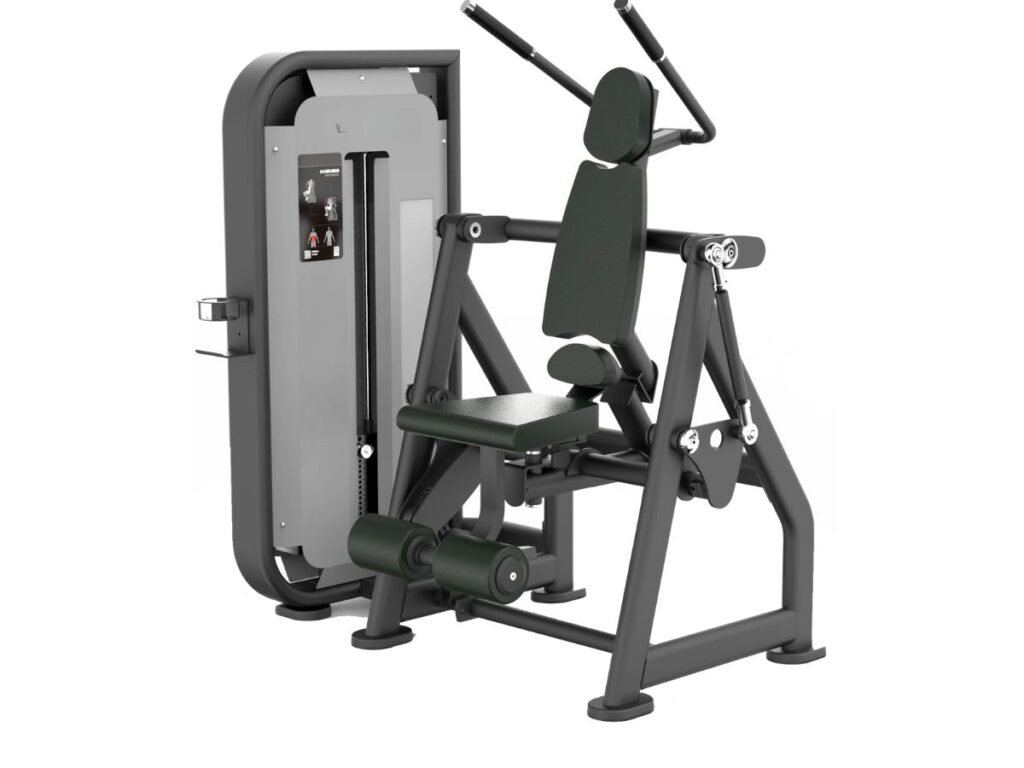
8. Leg Curl / Leg Extension Combo Machine
Leg day used to feel confusing. I’d bounce between machines, adjusting pads, guessing form, and hoping I was doing it right.
Then I found a combo machine. One seat. Two exercises. I trained my quads, flipped the lever, and switched right into hamstrings—no waiting, no second setup. It made my workout faster, smoother, and honestly, way less stressful.
Key Features
- Dual-function design: trains both leg curls and leg extensions from one seat
- Adjustable thigh pad and foot roller: fits different leg lengths and body types
- Smooth cam-based motion: keeps resistance consistent through each rep
- Commercial selectorized stack: easy weight changes with 5–100 kg range
- Space-efficient frame: ideal for smaller gym areas
- Target muscles: quads, hamstrings, knees (stabilization)
Pros and Cons
Pros
- Two workouts in one machine—saves space and time
- Hits the full front and back of the legs
- Good for both shaping and joint recovery goals
Cons
- Needs signage or guidance for first-time users
- Setup may feel tricky for beginners without instruction
Why Choose This Machine
This combo unit trains both quads and hamstrings in one seat—perfect for sculpting, rehab, and saving space. At YR Fitness, our leg curl/extension machine combines smooth motion with adjustable support, making it a smart fit for women’s studios, compact gyms, or any space focused on complete lower-body training.
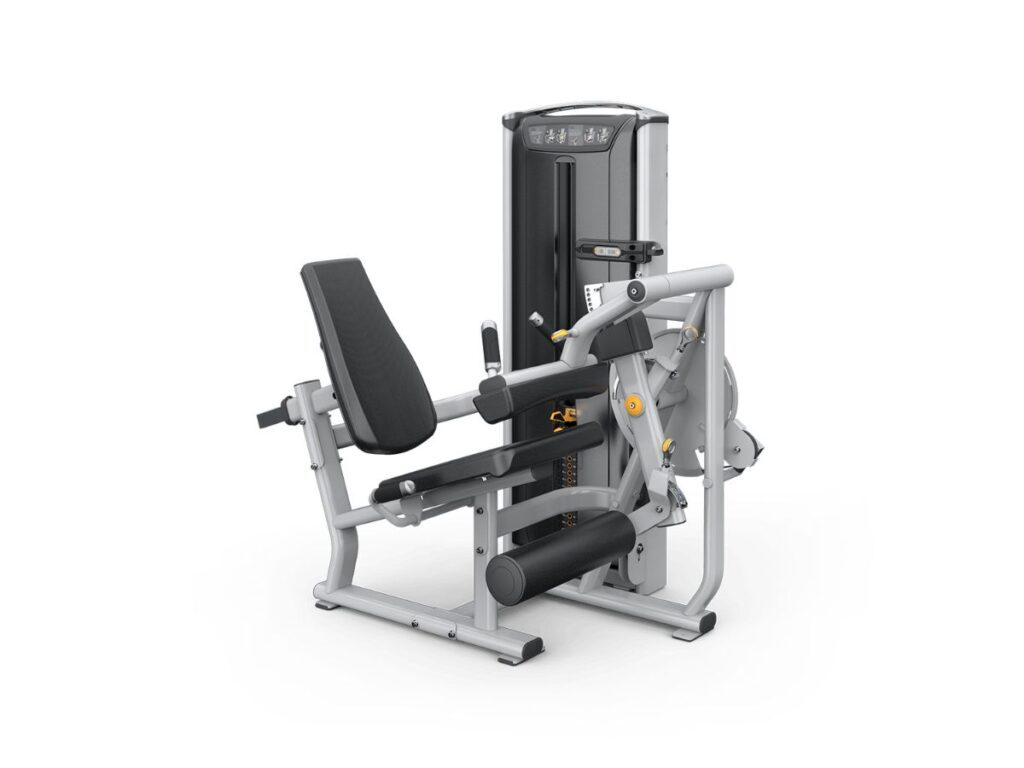
Conclusion
We’ve covered 8 of the most effective gym machines for women—each built for strength, confidence, and results. From glute training to low-impact cardio, there’s something here for every fitness space.
So, what’s stopping you?
These aren’t guesses. They’re proven machines that improve engagement, retention, and experience.
What matters most to your space: compact design, versatility, or comfort?
Contact us today and take the first step toward a smarter, more inclusive setup.
Related articles:
